Boatschooling: What We're Doing, And How We're Doing
The posts in this blog are sometimes my idea, sometimes my dad's, and sometimes assignments he gives me, just as my teacher used to do. This one is different. My dad wrote it, and here's why.
He asked me to write about how we handle “boatschooling.” He thought it would interest people, and that writing about it might help us feel good about what's working and give us ideas to do better.
I told him he should write this one, not so I could get out of the assignment, but because he's the one managing my boatschooling. He agreed, and so here's my dad.
__________
Boatschooling was not thrust upon us by Covid. We started planning our schooling approach over two years ago, and began the actual coursework 16 months ago, in early October of 2019, months before Covid struck. As a result, we are less distraught about how to handle schooling from our (floating) home than many families these days. Changing something isn’t nearly as stressful as being forced to change.
Though our boat’s home port is in Florida, our homestead is in Michigan. In the U.S., each state has considerable latitude in determining what is required in a student’s schooling. Some states are more flexible than others. Michigan is among the most flexible.
We learned about Michigan’s flexibility when we decided to let our daughter — 7 years older than Salter — “self-school” (direct her own education) for her High School years. While she excelled in Elementary School, things didn't go so well in Middle School. Despite some excellent teachers, she didn’t fit well with the culture of her school: the regimented structure, the required courses, the one-size-fits-all pace of teaching, and the cliques which can happen among Middle School kids. She was also bullied, perhaps because she is independent-minded, classically beautiful, and smart. When she began to self-school, her education turned around. She began to study things like Chinese, and Japanese, and took online science courses through Northwestern University. She even spent her Junior year as an exchange student in Japan, living with a wonderful Japanese family in Hiroshima.
Our daughter’s hand in her own education helped her chose the most interesting, best courses for which she was eligible, pace them as she wished, and take ownership of her grades.
It paved the way for us to think creatively about Salter’s schooling too.
__________
Salter is a smart kid who struggles a little bit socially at this stage of his life. Doing well in his classes comes fairly easy to him. Making friends and engaging with others is less natural. So I felt it would be better if his Middle School experience was immersive in meeting an array of people in the “real world;” adapting to almost constant change by flexing with circumstances that present themselves; seeing, appreciating, and being inspired by natural beauty; and, most importantly, learning who he is and to accept who he is. All this while covering the basics in coursework so he could fit academically into a future High School. I also did not want him teased or bullied for his differences, as my daughter was.
__________
Here are the major influences on how we decided to pursue Salter's Middle School education.
A few years ago, I was listening to a teacher being interviewed on the radio. She said something that struck a powerful chord. Namely, that a teacher’s job is not to teach (meaning, to instruct or impart knowledge). Rather, it’s to educate. She went on to say that our word, educate, has a Latin root — “educere” — which means “to nourish, to bring up, to draw out.” The Greek philosophers Socrates and Plato had a similar vein of thinking, believing that knowledge resided within an individual and would come out under the right conditions. This rang especially true to me as each of my three kids is so different, with different interests and different learning styles. Why should they all be taught the same subjects the same way? Why not endeavor to bring out what might be in each of them, including making the most of whatever makes them special?
I’m not advocating abandoning traditional subjects and content. Rather, identifying, working with, and enhancing innate abilities and natural interests. After all, isn’t that a key part of what growing up should be about? Helping each kid figure out his/her skills, gifts (if any), and the passions which might help sustain him/her in life?
The next influence on my approach to Salter’s boatschooling was inspired by an outstanding elementary school teacher, who had a powerful influence on my two older kids. That teacher strongly encouraged his students to write, on any subject. Hence this blog. In part, it serves as a creative writing course. That same teacher also told parents, who disapproved of books like graphic novels, to roll with it, because getting kids to read — whatever they fancy — matters far more than what a parent wants them to read. So I press Salter to read while we are underway, rather than default to video gaming. Read anything. Just read. Lastly, that teacher believed that recess should never be taken away from kids as a form of discipline, because kids need to move. Sometimes to get their ya-ya’s out. Sometimes to work out what’s troubling them. Sometimes to help them think. Why take that away — ever? And so I promote pretty vigorous daily exercise, which serves as both recess during schoolwork and Phys Ed class. Most days, we walk miles. (Without a car at our disposal, it’s amazing how much walking we do!) Some days, we get in a few miles of biking. When we move the boat further south in the coming weeks, we will be adding sailing lessons and then snorkeling to his outdoor activities.
Another influence on Salter’s boatschooling came from a conversation I had with a successful attorney several years ago. He told me that schools should be helping kids learn to solve problems, because that's what hiring authorities and customers want. Kids need to learn how to identify opportunities, think through difficult circumstances, and figure out how to capitalize on them or work through them. I believe the continuously changing environment and circumstances of being a live-aboard is an outstanding venue to build this in Salter. There is a butt-ton (Salter’s word) of variety, newness, and challenge to face. One day our schedule might be super tight -- a long passage that starts before dawn, with things like tide heights, current, weather, wave height and frequency, bridges, locks, ship traffic, shallow water, and available daylight all to consider. Another day, our schedule might be super light -- a short hop on the water, or no hop at all. And then there are those days when carefully laid plans are abandoned while we are underway -- a mechanical issue, unforeseen weather, an error in our calculations, or a change in our destination. This teaches Salter to be flexible and to adapt to circumstances or to make them work on his behalf. I can think of few better ways for Salter to learn to plan ahead and attend to details, yet to be fleet afoot.
Though adapting to continuous change is an important lifeskill to develop, I am told kids like Salter need routine. He gets plenty of it. It might seem paradoxical that, along with continuous change, there’s plenty of routine to running a boat: planning routes, departing, docking, and locking procedures, securing contents for rough weather, operating a variety of complicated electronics, performing maintenance, stowing provisions, doing laundry and dishes, constant cleaning inside and out, and keeping our quarters uncluttered.
A page from the operating manual we created. For safety reasons, we were trained to follow strict procedures when we run the boat. They have become routine. Learning how and why to do this might help Salter in his career someday, or in recreational activities like operating his own boat, safely handling firearms, flying a plane, assembling complex equipment (like a child's bicycle at 2:00 am Christmas Morning), or learning to cook well.
There’s another big influence — good and bad — that affects Salter’s boatschool curriculum. His dad [that’s me] is ADD-ish. (Can't you tell?) I tend to deviate somewhat from a set curriculum because I’m constantly stimulated (and therefore distracted) by what’s going on around me. I’m learning to forgive myself for this because of something I read a year or so ago. Namely, that educating and learning don’t always have to be linear. It's ok to deviate. In fact, if it's Salter who suggests the deviation, it can be great!
I believe kids develop different interests and learning abilities at different times in their lives. Hence my emphasis on math, science, and communication skills. There’s nothing wrong in focusing on one subject at a time, or a group of subjects at a particular age — so long as the student ends up with a well-rounded education, greater self-awareness, and valuable skills to offer in the field(s) of his/her choice.
I also believe learning and education are continuous processes. The learning and education, on various levels, begins when Salter awakens each day and ends when he goes to sleep. Though I'm always on the lookout for teachable moments, they just seem to appear, almost magically, each day.* Sometimes so many appear in a day, it's overwhelming. Maybe it's because I believe everything offers a learning opportunity.
* Here's an example. At our marina the other day, I met an electrical engineer. It turns out he's a retired GE executive from the Jack Welch days. He holds 13 patents. This evening, an hour before sundown, Salter and I will be sitting outside with him, where he will play his violin for us and introduce Salter to a world he has been asking me about: electricity and electronics.
__________
So exactly how are we going about boatschooling?
It's kind of a minestrone.
Salter has always been a science-oriented kid. He has long enjoyed Chemistry, and is fascinated by Physics, Astrophysics, and the profession of Engineering. A course in Biology is in his future. Because all sciences are rooted in Math, I chose to make Math a focus up to this point. When we began our boatschooling experience in late September, 2019, Salter took Grade 5 Math again (remedially) as a refresher. He has since gone on to complete Grade 6 Math, Grade 7 Math, and he just finished Grade 8 Math (even though he’s in Grade 7). All this in less than a year and a half. His final grades were all in the low 90%'s, even in Grade 8 Math, where he scored 91%.
Salter also completed Middle School science this summer, with a grade in the upper 80's%. Because has such a natural thirst for Science, I felt we needed to continue with that subject. So this fall, we started High School Physics (again, though he’s only in Grade 7). This is why I pressed forward with Grade 8 Math — a year ahead of his level. I felt he needed the full grounding in Middle School Math subjects before tackling Physics, which heavily applies the Math.
Incidentally, I’m not a science guy. I barely squeaked by High School Physics. So how can I educate Salter in it? It comes down to this. I'm genuinely interested in learning the fundamentals of the world and universe. That curiosity makes me naturally enthusiastic, which makes the material we cover more interesting for Salter. I'm also highly motivated to give him the best education I can. It's amazing what the combination of enthusiasm and motivation can achieve.
Beyond the sciences, I am a huge believer that speaking and writing well are critical to success in any career and virtually all aspects of life. So Salter did Middle School Grammar on the boat, with a grade in the 90's%. I know the extensive dialog he has with me every day, and watching me interact with a wide range of adults -- bridge tenders, dockmasters, waiters, Uber drivers, shopkeepers, other boaters, passers-by, etc. -- must be helping him learn to communicate well. This is educating by example.
Do we have set days and hours for schoolwork? Do we have set dates for course completion? The answers are no. We run the course speed based on what I feel Salter can handle, while trying not to lessen the joys of being a transient live-aboard.
Why no daily schedule? Well, it’s a matter of “because we can” and “because we can’t.” In the “because we can” category, we have the flexibility to not boatschool on beautiful sunny days, or days when we are in fascinating, beautiful cities like Annapolis, Charleston, or Savannah. Nor do we need to begin or conclude coursework on the same days or months when Salter’s peers are in school. In the “because we can’t" category, there are practical considerations. Because I literally sit next to Salter to help educate him, and because I’m the Captain, I can’t very well focus on moving the boat 80 or 90 miles on the Atlantic (or 50 winding, shallow ones on the Intracoastal) while simultaneously boatschooling him. Nor do I have the energy to sit with him after a long, trying day on the water. Nor can we always access wifi or receive a sufficient cell signal to access his online courses.
Which brings me to what services we have been using for the above subjects. The best courses we have found so far are those of Kahn Academy (kahnacademy.com). Sal Kahn is revolutionizing education with his enthusiastic, video-led instruction. (Though Kahn Academy is free, we voluntarily donate to help build the coursework and infrastructure which has been so valuable to Salter and millions of other kids around the world.) Here is a must-see link to a TED talk by Sal Kahn, way back in 2011, just 3 years after he started his Academy. If you want a pick-me-up, watch the video. It's great stuff! https://www.khanacademy.org/college-careers-more/talks-and-interviews/talks-and-interviews-unit/conversations-with-sal/v/salman-khan-talk-at-ted-2011-from-ted-com?modal=1
I made one blunder so far in choosing Salter’s courses, and that was for Middle School Science. After days of drawn out research, I chose The Keystone School for that course. (As of this writing, Kahn Academy does not offer a Middle School Science course yet.) Not to disparage Keystone…. well, yes to disparage Keystone… we found their Middle School Science course so dry, so outdated, so wooden to use, and so mistake-riddled, it became a struggle for me to keep a Science-oriented student from learning to find Science boring. And so, together, we decided to laugh about that course while he took it. We found comedy in their errors. Salter completed the course, and he achieved a good grade in it, while inadvertently learning how not to construct an online course. I excused him from completing many of the course’s assignments because I saw little merit in him doing them — so long as he learned the material and so long as we could move away from Keystone as quickly as possible.
A screenshot from Keystone, Middle School Science. The voiceover asked if aliens really exist, while the video showed them menacingly approaching earth. We just laughed and laughed.
Another Keystone comedy. The voiceover asked if the cow could actually jump over the moon. You can't make this stuff up.
__________
What’s next for Salter in his Middle School education, with a year and a half left aboard?
For starters, we will continue with Kahn Academy as much as possible. It’s that good and it’s working that well for us.
But there are holes in what I am doing. Thanks to my wife and some close family friends who understand what’s developing in online learning, I have plenty of ideas to fill those holes, though this easily-distracted teacher will find it challenging to incorporate.
Though we subscribe to Curiosity Stream, and The History Channel, we have not dived as much as we should into those programs. Nor have we taken advantage nearly as much as we should of the many fascinating TED Talks available on the Internet. Nor have we delved at all into certain cool educational apps, though I do have many of them downloaded. (You did notice the letters in “dad” also spell ADD, right?) Brilliant, Chess, and Podcasts are some of those. Most recently, my wife pointed me toward a non-profit website called www.understood.org, which offers tips, support, and encouragement for kids who learn and think differently. And a great family friend recently suggested we take some of the really cool, individual courses on www.outschool.com, with things as diverse as Building Circuits, Stock Market Investing, Making Animated Movies, Forensic Science, Learning to Debate, etc., etc. There’s such a cornucopia of learning opportunities, it’s a struggle to choose among them. I just need to do better at building them into our boatschooling experience. Educating Salter can and should include some of these other, smaller courses, other media forms, online clubs, and better planned field trips.
We've done quite a few field trips (in many ways, every day is a field trip when you're a transient live-aboard), and we'll certainly keep doing them. Salter has stopped for professional Baseball in Cleveland. He has boated underground in the Howe Caverns of upstate New York (not in our boat). He's been to his first Symphony Concert. He’s experienced a whole range of different ethnic foods and seafoods (fish and shellfish you can't -- and shouldn't -- get in our small, northern Michigan town). He's stood where the Wright Brothers first flew and raced me to the top of their Memorial, watched NASA rockets take off, been to a Loggerhead Turtle rescue hospital, sat at the helm of an aircraft carrier, toured a Naval destroyer escort ship, roamed all over the battleship USS Wisconsin, been to the top of the Jupiter Inlet lighthouse in Florida, and seen and done many other things that promote learning.
Culturally, aboard Salter has watched the great Chaplin films, most Hayao Miyazaki anime films, countless classic films including nautical-themed ones like Mutiny on the Bounty, The Bounty, and yes, Captain Ron and The Life Aquatic with Steve Zissou. :) He’s watched several Hitchcock’s, a few Kubrick’s and Scorcese's, both Cape Fear films (at the mouth of the Cape Fear River, and countless other quality pictures.
He has also watched the Cosmos series by Neil DeGrasse Tyson, and DVDs of The 100 Greatest Science Discoveries of All Time. Recently, he's discovered the many online Youtube science experiment videos of Mark Rober, Smarter Every Day, and The Backyard Scientist.
And, though our boat has a washer and dryer, he's also done laundry at a laundromat. It's all part of learning.
There's plenty of music aboard too. I'm grateful he and I overlap a lot in musical tastes. He listens to plenty of Keith Jarrett (his favorite), Bach, Beethoven, Neil Young, Bob Dylan, Joni Mitchell, Pink Floyd, Frank Sinatra, classic soul, classic rock, and lots more. To my amazement, he even likes Mahler. (I didn't appreciate Mahler until my collage years.)
Regrettably, Covid has sharply curtailed our cultural experiences off the boat. Concerts and live music are shut down, as are plays and sporting events. Museums and other prominent sites to visit like the United States Naval Academy or Kennedy Space Center are either closed to visitors or made less fun by exhibit restrictions and requirements for physical distancing and masks. I've chosen to suspend that part of our experiences not so much for safety reasons but because they're just less fun. Salter agrees. This gives us something great to look forward to when health conditions improve.
Covid may suck, but you can still have a sucker.
I want to point out another important way Salter is being educated, and where the learning will clearly continue. He has learned to run every aspect of our complex boat, including plotting courses and planning for weather, pre-start engine room checking, powering up all systems, engine room checking while underway, and manning the helm from the pilothouse and flybridge. There are 6 different ways to direct our boat from the flybridge: the traditional wheel, the main engine (a burst of power in a given direction), our autopilot, our navigation system, our follow-up toggle (electronic rudder control), and our bow and stern thrusters. Knowing which to choose and when takes skill. Salter "gets it." He has also learned the correct way to use our VHF radio, our sonar (depth finder) and our radar. He's learned to handle our lines and fenders (for which he receives universal praise from dockhands and other boaters), to set and weigh our anchor, to lock, to dock, and to power down all systems.
This is education of a different sort. It’s experiential education. Beyond the knowhow, it builds focus, responsibility, maturity, character, and confidence. These aren't traits one can develop in a classroom or through an online course. Given I had no idea how to run a boat like this (the biggest boat I’d owned before was a late 40's, 25-foot wooden Chris-Craft, with no systems whatsoever), Salter and I have both had to learn on-the-fly how to run a boat like a Nordhavn. It’s one thing for a 58 year-old to do that. It’s entirely another for a 12 year-old (now 13 year-old) to do it. I have to keep reminding myself he’s only 13. At 13, I was doing, well, not a lot.
Learning what to check before starting our main engine.
On the Atlantic. Learning how to do an engine room check. It's a nice engine room, but very intimidating while we are underway. Especially for a then 12-year old. Lots of heat, lots of noise.
Not all Salter's education aboard has come from me. We are so fortunate to have dear family friends who played a huge role on our maiden trip from Palm Beach to Northern Michigan. Here's Allyson, teaching Salter how to handle our lines and fenders among so much other knowledge she shared.
We had a wonderful training Captain for our maiden trip. John is a true gentleman and an experienced, prudent Captain. He set the tone for this boat. Here he is, teaching Salter how to lock on the Erie Canal. Since then, Salter has transited the Erie and Oswego Canals twice, the monster locks on the Welland Canal twice, and a few other scattered locks. In his first year, Salter locked over 68 times.
First time using the VHF. He did just fine. Plus, it's the NASA bridge, so it's extra cool.
Advance a year and a half. Salter at the helm, December, 2020. (This clip was too big to upload to the blog, so we moved it to Youtube. Here's the link: https://youtu.be/ilaZY2XwHNE) You can see how comfortable he is with the systems. You'll also see how a day moving the boat offers another form of education: hours and hours of real-world observation and plenty of Q&A with dad.
There is another glaring hole in Salter’s education I am concerned about filling. And that is the social one. I’m sure it’s pretty evident I am his constant companion. Though our boat is 47’, there’s nowhere to hide. And given his age, I can’t merely drop him ashore for a few hours to do what he wants. So we are constantly together — from the moment we awaken to the time we turn out our lights, usually at the same hour. That makes me his father, his educator, his Captain, his confident, and his friend. Also, his cook and housekeeping. :).
What’s missing are friends and acquaintances his own age. I was surprised to learn there aren’t many other kids his age who are live-aboards. And among those, far fewer who are aboard a non-sailing vessel. I expect most live-aboard kids are: 1) younger than he is; 2) on sailboats, not boats like ours; 3) typically at sea or on the hook (rarely at marinas); and 4) in the Bahamas.
We are headed to Florida to have some work done on the boat. After that, the plan is to get to Bahamas for the first time. We have joined a Facebook community called Kids4Sail. I am hopeful this will help us meet up with other families so Salter can associate and recreate with kids his own age. Covid, of course, complicates this. But even if he meets these kids ashore and then can connect with them on-line, it’s a step. Covid won’t dominate our lives indefinitely. A relationship formed this year can be maintained online and resumed next year, when hopefully, people can once again freely associate safely.
__________
So there you have it. An imperfect dad who is an imperfect, though dedicated, teacher in a turbulent time handling a lot of responsibilities and, let’s face it, a teenager. No school fits a kid 100%. This one doesn’t either, mainly due to who I am. But I will tell you, he is learning. He is growing. And it’s a thrill to witness this so closely.
__________
P.S. I wanted to add something to this post that might interest readers. Why did I name our boat "Spirited Away?" Spirited Away is a brilliant, Oscar-winning, animated Japanese film that has had a formative cultural influence on our family. In the film, the main character, Chihero, is transformed through adversity from a whiny, apathetic pre-teen into a confident, selfless young woman. I dedicated my boat’s name to this film, and to the notion that Salter, while not apathetic or selfish, would almost certainly undergo considerable maturing during these formative Middle School years. So far, so good.
P.P.S. It has been awhile since our last post. This one took a lot of thought. Salter wanted me to let you know we've gathered some really interesting ideas for future posts. The next one's on him!

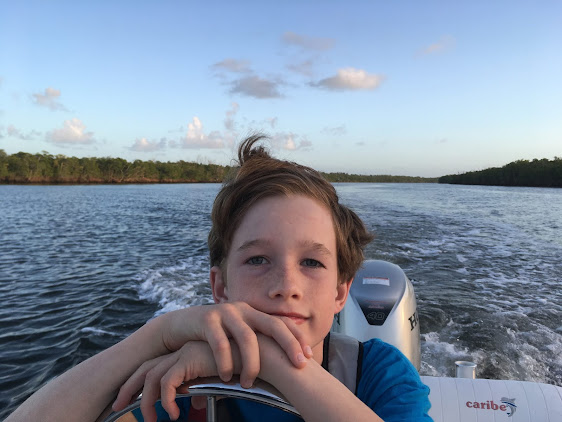


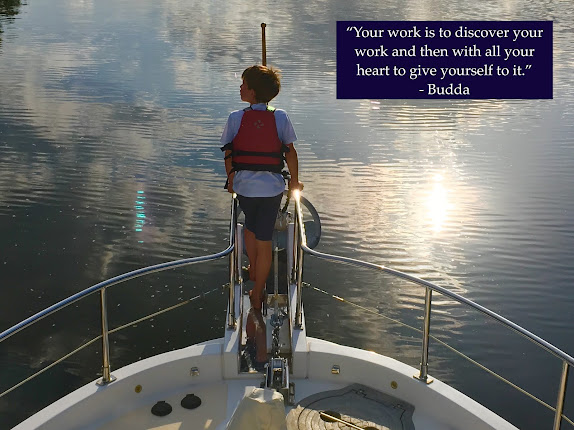




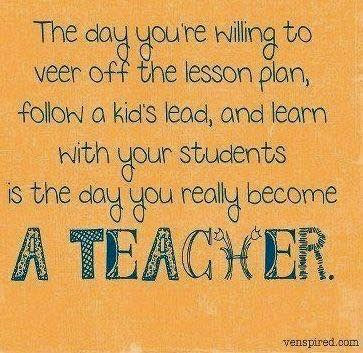








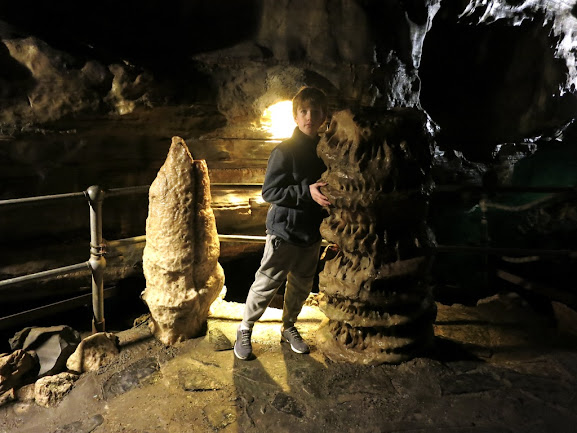
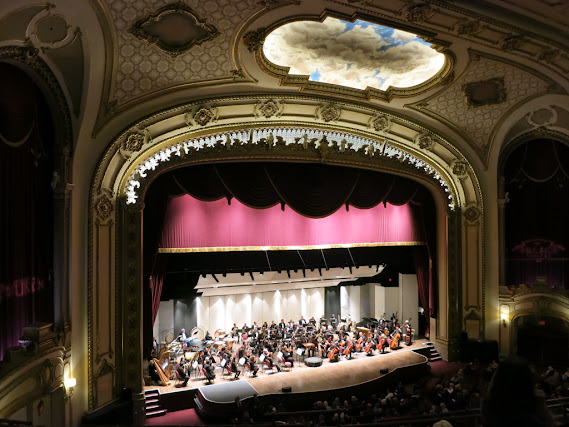










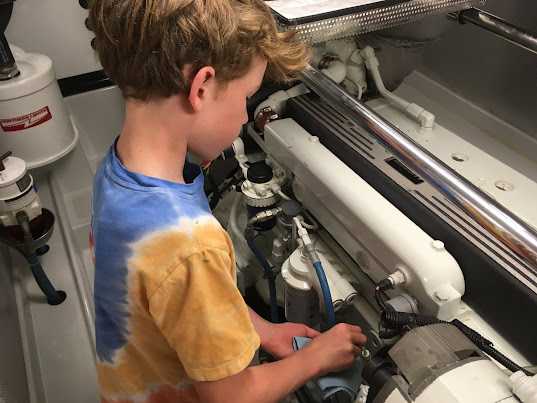







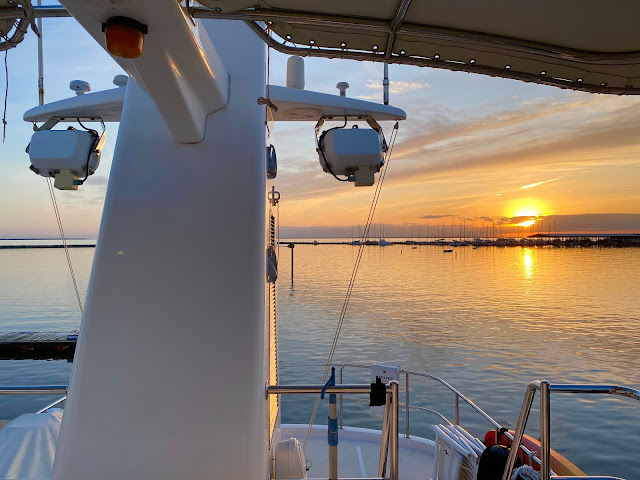

Wow. What a comprehensive and refreshingly honest assessment of your experiences learning together and teaching each other. I say this because I know Salter has taught you, Daddy, as much as you've taught him. Although circumstances prevented me from joining you this year, when I planned to amp up the History learning, I know you are doing your best to fill in some of those gaps. Perhaps next school year we'll more fully "make a go" of that subject. Proud of you both! Love, Sarah (Mom)
ReplyDeleteEnjoyed meeting Spirited Away and Salter in Cocoa. Hope you can use the MegaFends. Craig & Dawn
ReplyDelete